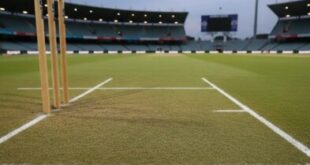If you’ve noticed bulging or twisted veins in your legs, especially after a long day of standing or walking, you’re not alone. Many people in India — from homemakers and shopkeepers to professionals who sit or stand for hours — experience this. These are commonly known as varicose veins, and while they may look concerning, they’re not always dangerous. That said, they’re not something to be completely ignored either.
Varicose veins happen when the valves inside our leg veins become weak, causing blood to pool and the veins to swell. For some, this may only cause visible veins. But for others, it may come with leg heaviness, mild pain, swelling near the ankles, or a feeling of tiredness in the legs — especially in the evenings.
The good news is, not every case of varicose veins needs surgery. Many people can manage mild symptoms by walking regularly, avoiding prolonged standing or sitting, keeping their legs elevated when resting, and wearing medical-grade compression stockings. So if your symptoms are minor, there’s no need to panic.
But here’s where you should pay attention — if you’re feeling constant discomfort, if the swelling isn’t going away, or if the skin around your ankle is becoming darker, dry, or itchy, it’s time to consult a Vascular Surgeon. In some people, untreated varicose veins may eventually lead to small non-healing wounds (ulcers) or even bleeding from the vein. In such cases, ignoring it can lead to more serious problems.
The important thing to know is that treatment today is much easier than it used to be. Earlier, people feared surgery and long hospital stays. However, minimally invasive techniques, such as laser or radiofrequency ablation, are now commonly used. These are quick procedures, which can be done under local anesthesia or mild sedation, often completed in a few hours, and most people can go home the same day.
Many people aren’t sure whom to consult for this. Should they visit a general doctor, a dermatologist, or a cosmetic clinic?
While others may offer basic advice or temporary relief, the most qualified specialist to treat varicose veins is a vascular surgeon. A vascular surgeon is trained to treat diseases of both arteries and veins. They don’t just focus on the visible veins — they assess the deep venous system as well and offer solutions that are both safe and long-lasting.
Their approach is not just about removing the vein but about understanding why the vein became varicose in the first place and how to prevent it from recurring. Especially in cases where diabetes, obesity, or previous leg injuries are involved, this expertise can make a big difference.
If you or a loved one is living with visible veins, leg swelling, or discomfort, don’t be alarmed — but don’t brush it off either. The sooner you get it evaluated, the easier the treatment and the quicker the recovery.
Varicose veins may start as a small issue, but when handled early, they rarely become serious. Taking care of your legs today ensures they’ll continue to carry you comfortably for years to come.
By: Dr. Krishna Chaitanya, Lead Consultant – Vascular and Endovascular Surgery, Aster RV Hospital
Check Also
Armatrix Raises $2.1 Million Round Led by pi Ventures to Build Next-Generation Snake-Like Robotic Arms to automate confined space operations
One of only four companies globally developing this form-factor robotic arm capable of inspection, maintenance …
 Newspatrolling.com News cum Content Syndication Portal Online
Newspatrolling.com News cum Content Syndication Portal Online






